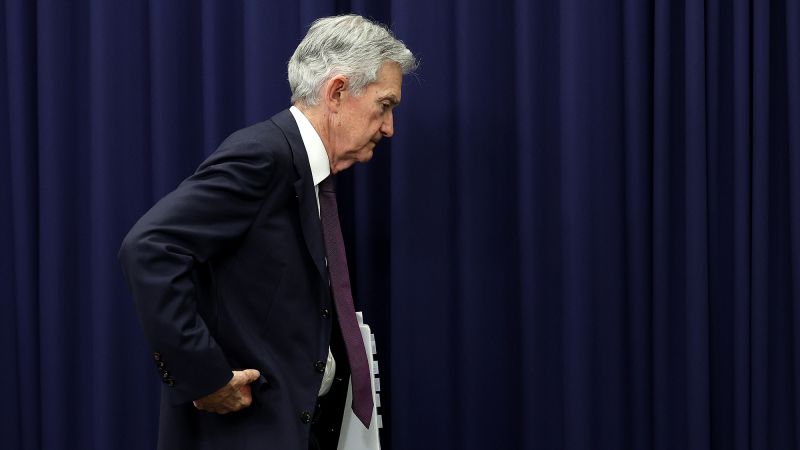In contemporary discussions around the economic landscape of the United States, the potential consequences of President Donald Trump’s threats to dismiss Federal Reserve Chair Jerome Powell have sparked significant attention. Although the likelihood of Trump following through on such a move remains low due to complex legal challenges, the very suggestion has raised alarm bells among investors and economic analysts. The ramifications of firing Powell could lead to a cascade of devastating effects that resonate throughout the U.S. economy and potentially across global markets.
The current environment indicates that investors are becoming increasingly desensitized to Trump’s critiques of the Federal Reserve. This shift in sentiment may stem from the understanding that the president’s own economic advisors have cautioned about the chaotic market implications that could accompany such an action. Following a public display where Trump brandished a draft termination letter for Powell, markets initially reacted sharply, with significant declines in stock values and a decrease in the strength of the U.S. dollar. However, Trump’s reassurances that he had no immediate plans to remove Powell quelled some of these anxieties, suggesting a complex relationship between political rhetoric and market sentiment.
Financial experts warn that a move to dismiss Powell could backfire immensely, shaking Wall Street and disrupting the balance of the bond market. The risks involve not only a loss of confidence in the Federal Reserve’s ability to conduct appropriate economic management but also an increase in interest rates that would adversely affect borrowing costs for consumers and the government alike. Markets generally favor a central bank that can operate free from political pressures to assure consistency in monetary policy, which underscores the importance of Powell’s independence.
Nonetheless, President Trump has publicly criticized Powell for his reluctance to lower interest rates quickly enough. Ironically, an attempt to remove the Fed chair could set off a reaction that raises interest rates instead, with borrowing costs likely to spike as investors respond to perceived instability. This contradiction highlights the delicate dance between political influence and economic stability, a balance that current market conditions appear to jeopardize.
Recent commentary from economists reflects widespread concern over how firing Powell could destabilize markets. For instance, Jason Furman, an economist at Harvard University, emphasized that any effort against Powell might unleash significant uncertainty and turmoil, potentially reversing any temporary gains the administration sought to achieve. Financial markets, having displayed their discontent, provided a poignant reminder of the potential chaos an unceremonious exit for Powell could invoke.
The bond market’s reaction further underscored this point, with yields on 30-year Treasury bonds spiking in response to uncertainty about Powell’s future, illustrating a distinct risk of investor revolt should Trump attempt to undermine the Fed. Republican senator John Kennedy also warned that any potential lowering of interest rates under such political duress could lead to chaos in the bond market, raising rates dramatically and amplifying borrowing costs for the government.
Furthermore, analysts assess the risk posed to the U.S. dollar’s stature as the world’s reserve currency. Francesco Pesole, an FX strategist, highlighted how Trump’s threat to dismiss Powell could trigger a wave of volatility in the dollar’s valuation and undermine investor confidence. The dollar’s appeal has traditionally hinged on the stability of U.S. institutions; any perceived compromise to the Federal Reserve’s credibility could have long-lasting implications for its global standing.
Subsequently, the implications of undermining Fed independence stretch beyond mere market fluctuations. They could engender a lack of trust among investors, which is foundational to the economic vibrancy of the United States. If Trump’s ongoing criticisms lead to public skepticism regarding Powell’s ability to steer economic policy effectively, the Fed’s capacity to manage inflation or foster growth where needed may be considerably weakened.
In conclusion, President Trump’s public criticisms and threats to dismiss Powell serve not only as a point of contention in political discourse but also raise legitimate concerns about economic stability. Experts universally acknowledge that meddling with the independence of the Federal Reserve could have far-reaching and detrimental effects, particularly in today’s uncertain economic climate. In an environment already sensitive to inflationary pressures and external market influences, maintaining trust in the Federal Reserve’s decisions is vital for the overall health and stability of the U.S. economy and its standing in the global market.











